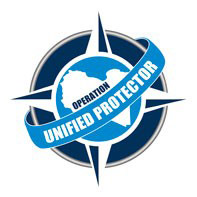
Operation Unified Protector, NATO’s mission in Libya, is winding down. Claiming victory, the Obama administration is chiding those who opposed U.S. involvement. While NATO has succeeded in preventing Muammar Qadhafi from further targeting civilians, the mission has exposed a significant alliance weakness: the unfair sharing of the burden for common defense among NATO members.
In a speech last week, U.S. Defense Secretary Leon Panetta stated, “At this time the mission was embarked on, there were a lot of critics, about whether it was the right mission, at the right time, with the right force…There were an awful lot of questions about the mission overall and I think the critics have really been proven wrong.” Unlike his predecessor, Robert Gates, Panetta was a strong supporter of U.S. intervention from the start. Gates, on the other hand, argued that Libya’s uprising did not constitute a “vital national interest.” Despite Gates’ apprehensions about the mission, U.S. participation produced results that otherwise would have been difficult—if not impossible—for NATO to achieve.
While NATO is close to fulfilling its mission, it has done so with difficulty. On March 22, 2011, NATO acted on United Nation Security Council Resolution 1973, authorizing member states and regional organizations to take “all necessary measures” to protect civilians in Libya. The mission lacked many resources of which the U.S. was obliged to compensate for, including, trainers, targeting specialists, refueling tankers, intelligence and surveillance capabilities and reconnaissance platforms (Global Hawk and Predator drones).
Such dependence on the U.S. proved frustrating, especially in light of President Obama’s statement that the alliance, not the U.S., would take the lead on this mission. The glaring inequalities evidenced in the Libya operations are reminiscent of those seen during NATO’s mission in Kosovo (KFOR). There, the U.S. provided all of NATO’s jamming capabilities, 90 percent of the air-to-ground surveillance and 80 percent of the air refueling tankers. U.S. fighters and bombers delivered 90 percent of the precision-guided munitions as well. In today’s economy, the U.S. cannot afford to shoulder Europe’s load, particularly when those operations take place in Europe’s back yard.
Last summer, Secretary Gates gave his last policy speech to NATO, lamenting its transformation into a two-tiered alliance in which some members sacrifice blood and treasure in combat operations while others sit and watch. Similarly, Secretary Panetta urged NATO members “to share the burden of protecting common interests” and “commit to addressing growing gaps in our military capabilities even as we confront the challenges of fiscal austerity.” NATO Secretary General Anders Fogh Rasmussen echoed similar sentiments: “We could not have carried out this operation without the unique and essential assets from the U.S. This is no breaking news that we need help from the U.S… Smart defense can only work if it is done together; it is not an excuse to reduce budgets.”
The alliance has grappled with this very challenge since its inception. Currently, only Albania, France, Greece, the United Kingdom and the United States meet the Alliance’s benchmark to spend 2 percent of GDP on defense. Europe is under severe economic pressure to implement austerity measures, and the U.S. defense budget has taken a beating, severely limited U.S. military capacity. Additional cuts being discussed in Washington would further reduce many of the same assets essential to the Libya operation—stealth aircraft, carrier battle groups, amphibious capabilities.
As Secretary Panetta stated, budget cuts “cannot be an excuse for walking away from our national security responsibilities.” Other NATO allies have also expressed exasperation at the lack of commitment on behalf of their fellow members. At the Conservative Party conference last week, Britain’s Defense Secretary, Dr. Liam Fox, scolded NATO members who have failed to meet the 2 percent benchmark, saying, “You cannot expect to have the insurance policy but ask others to pay the premiums.”
NATO allies must acknowledge that despite the tough economic times, they must work together to evenly distribute responsibility for the common defense. The U.S. has proven itself a ready and willing partner in the alliance and has compensated where the alliance has faltered. For NATO to remain the most effective military alliance in modern history, allies must stand by their commitments to transatlantic security.